Brexit finalised, opens with a tax cut
The streets of London erupt as Boris Johnson hails a ‘new beginning’ for the United Kingdom, with EU divorce finalised.
The United Kingdom has officially left the European Union with a mixture of joy, anger and indifference, casting off into the unknown in one of the biggest blows yet to Europe’s attempt to forge unity from the ruins of World War II.
The EU’s most powerful leaders, German Chancellor Angela Merkel and French President Emmanuel Macron, cast Brexit – marked by the chiming of Big Ben at 11pm UK time on Friday – as a sad moment that is a turning point for Europe.
The EU warned that leaving would be worse than staying.
In the UK’s most significant geopolitical move since it lost its empire, the country turns its back on 47 years of membership and must begin charting its own course for generations to come.
At the stroke of midnight in Brussels, the EU lost 15 per cent of its economy, its biggest military spender and the world’s international financial capital – London.
A clock projected onto a British-flag themed Downing Street – Prime Minister Boris Johnson’s residence – counted down the minutes.
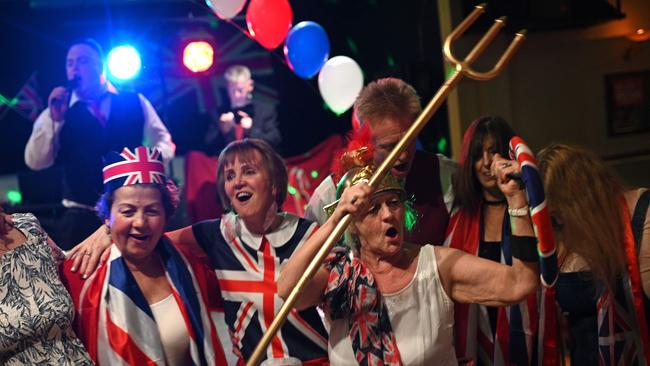
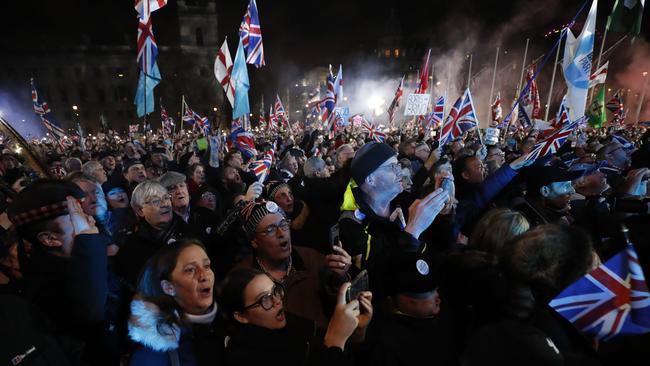
Several thousand Brexit supporters gathered outside the British parliament, many waving British and English flags as they sang Elgar’s “Land of Hope and Glory”.
“For many people, this is an astonishing moment of hope, a moment they thought would never come,” said Mr Johnson, one of the leaders of the “Leave” campaign in the 2016 referendum on EU membership. “This is the dawn of a new era.” Mr Johnson celebrated with English sparkling wine and a distinctly British array of canapes including Shropshire blue cheese and Yorkshire puddings with beef and horseradish.
In Brussels, Britain’s Union Jack was lowered at the EU council building and the bloc’s circle of 12 stars on a blue background was removed from outside the British embassy.
The final parting of the EU’s most reluctant member is an anticlimax of sorts, with little to change until the end of 2020.
By then, Mr Johnson has promised to strike a broad free trade agreement with the EU, the world’s biggest trading bloc.
Ms Merkel warned the negotiations “certainly won’t be easy”, cautioning London that if it deviated from the EU’s rules then its access to the EU’s market would be limited.
Mr Macron said Britain could not expect to be treated the same way as when it was part of the club.
“You can’t be in and out,” Mr Macron told the French in a televised address. “The British people chose to leave the European Union. It won’t have the same obligations, so it will no longer have the same rights.”
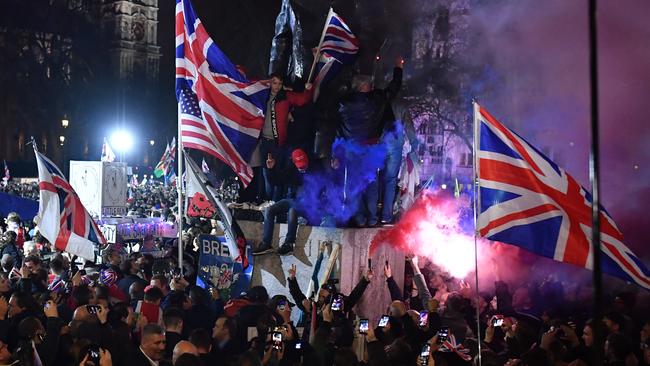
Brexit opens up with tax cut
Britain’s legal exit from the EU is being celebrated with a nation-stirring gift from Prime Minister Boris Johnson: a tax cut.
The remaining 27 member states of the EU signed off on the Brexit withdrawal agreement early on Friday with an exchange of diplomatic messages.
Unlike Thursday’s emotional scenes in the European Parliament, where MEPs passed the deal into EU law, the capitals’ “written procedure” was low key. The European Council said in a brief statement that the withdrawal agreement would enter into force at 11pm on Friday (10am Saturday AEDT), the moment Britain officially left the EU
In an address to the country to mark the divorce from the EU rules and regulations, Mr Mr Johnson said Brexit was not an end but a beginning: “This is the moment when the dawn breaks and the curtain goes up on a new act.”
A clock beamed onto the front walls of Downing Street counting down the moment of exit, 47 years and 30 days after the UK joined the European bloc.
“It is a moment of real national renewal and change. This is the dawn of a new era in which we no longer accept that your life chances — your family’s life chances — should depend on which part of the country you grow up in. This is the moment when we begin to unite and level up,” Mr Johnson said.
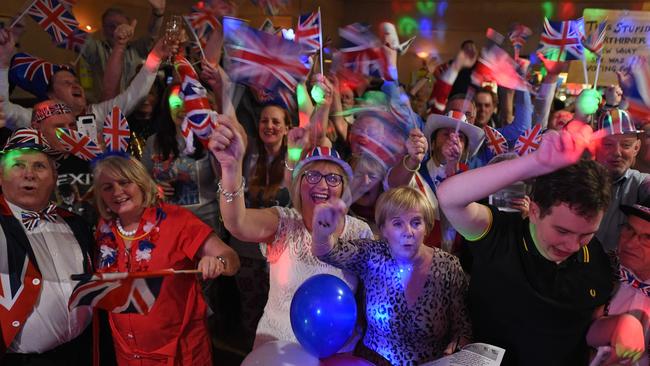
In the final hours before Brexit officially occurred, Mr Johnson held an extraordinary cabinet meeting in Sunderland, considered Brexit ground zero as it was the first constituency to declare Leave in the 2016 referendum.
The meeting was to sign off on the increased threshold to national insurance, giving most workers a £104 ($203) bonus, and kickstart the “Brexit bounce’’ so that Britain can take advantage of global trade deals.
US Secretary of State Mike Pompeo told Mr Johnson that Britain was “at the front of the line’’ for a “gold standard’’ trade deal, with officials keen to get a deal in the pipeline before the US election in November. A free-trade deal with Australia, and another with Japan, is also hoped to come into force next January, when the Brexit transition period is expected to end.
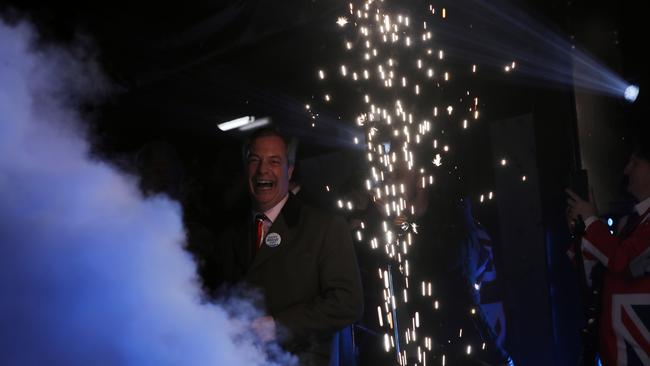
The government was keen to avoid any sense of triumphalism, knowing the moment was dreaded by nearly as many people as were ecstatic. The only overt sign of pomp was the displaying of the Union Jacks down The Mall and in Whitehall, buildings being lit up in colours of red, white and blue.
Brexit Party leader Nigel Farage hailed the divorce from Brussels as a remarkable piece of history, “the victory of ordinary people against the Establishment”.
Leader of the Commons Jacob Rees-Mogg called for “cordial relations with our friends in the EU’’, saying he wanted to marked the moment with champagne.
While the UK has officially left the EU and is now considered by it as “a third country’’, officials from both sides have an 11-month transition window to complete a trade deal and sort out what sort of relationship they will have.
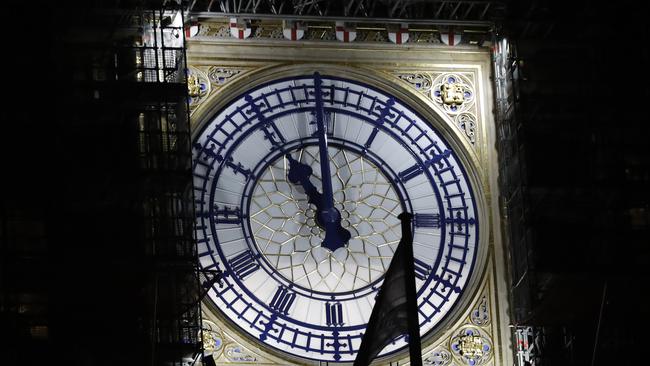
Until the end of the year, the UK will pay into the EU budget and remain subject to its laws, and the free movement of people between the UK and the EU will continue.
Mr Johnson will set out his vision for the trade talks on Monday. It is known he wants the country unshackled from the control of the European Court of Justice and he is prepared to diverge from EU rules, even if that means walking away altogether and erecting trade barriers.
He wants zero tariffs and zero quotas, but the EU’s protectionist sensibilities and demands the UK adhere to all EU rules — controlling working hours, labour laws, tax and environmental policy — appear to be incompatible.
The EU will spend the next few weeks trying to harness its 27 member states into a common position, which may be made difficult because of Britain’s move to reclaim its fishing rights upsetting the French and Spanish. Mr Johnson will also remind the EU that if there is no trade deal by Christmas then tariffs will be applied to German cars, French cheese and Italian wines on January 1.
The EU will announce its formal position at the end of February, ready for talks to start on March 3. Chief negotiator Michel Barnier said of Brexit: “We are weaker than if we were together.”


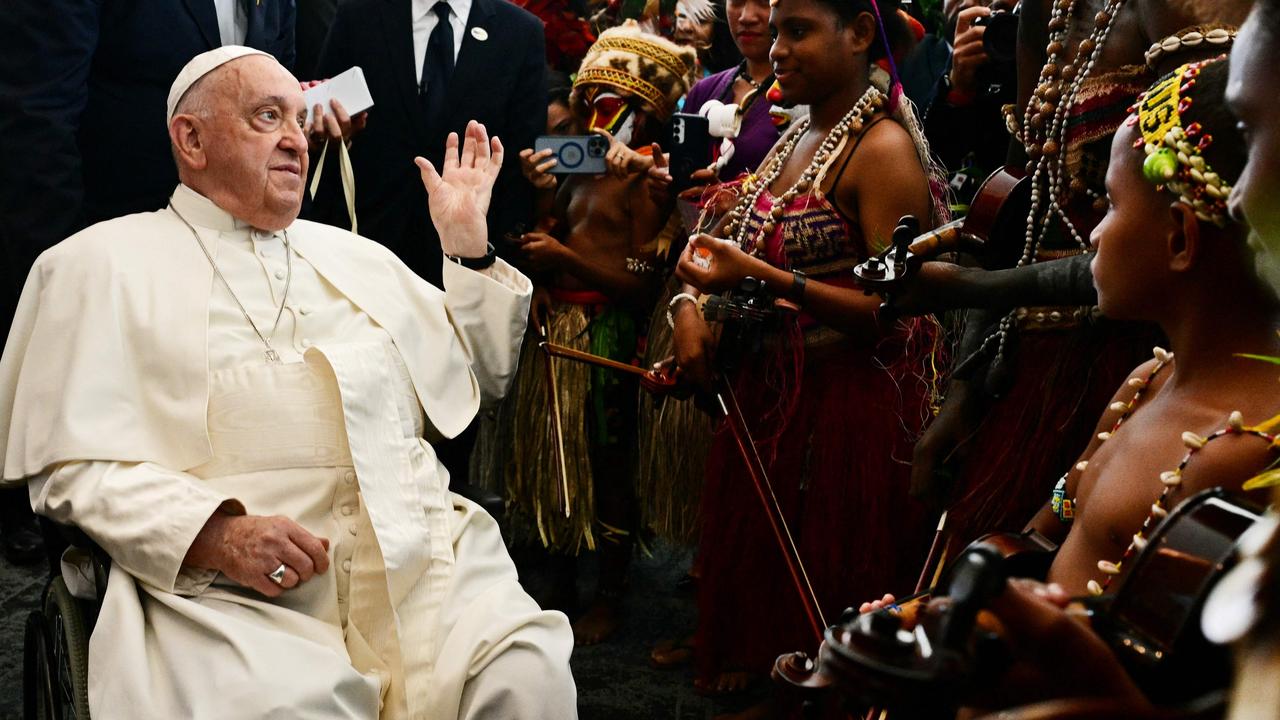
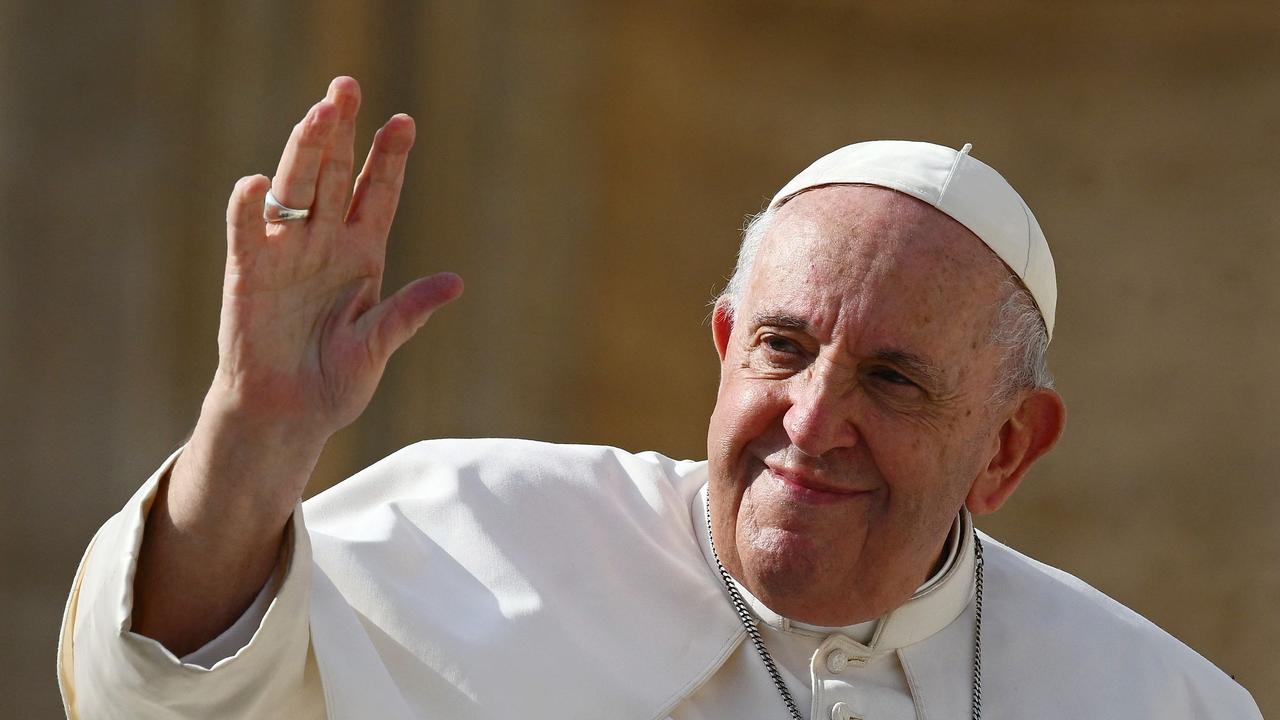
To join the conversation, please log in. Don't have an account? Register
Join the conversation, you are commenting as Logout